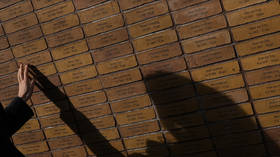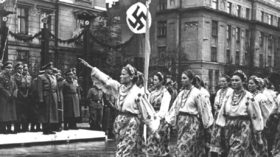Thousands of suspected Nazi collaborators named in EU state’s archives

The Netherlands has publicly declassified records on 425,000 suspected Nazi collaborators, after a 75-year restriction on access expired on New Year's Day.
The files, part of the Central Archives for Special Criminal Jurisdiction (CABR), relate to investigations into individuals accused of aiding Nazi Germany during its occupation of the Netherlands from 1940 to 1945. The Huygens Institute’s “War in Court” project has made the names available online as part of a digitized archive.
The records document cases involving individuals suspected of serving in Nazi forces, aiding German occupiers, or being members of the National Socialist Movement (NSB), the Netherlands’ main pro-Nazi party.
Despite growing public interest, privacy laws still limit access. Full dossiers can only be viewed if the person in question is deceased, grants permission, or if the request is for scientific research.
Searches also require specific personal details, and the system does not indicate whether someone was convicted or specify the nature of their alleged collaboration. Instead, users receive reference numbers for physical files stored at the National Archives, where access is granted only upon proof of legitimate interest.
Initially, files were stored using a phonetically arranged card system, which grouped similar-sounding names together, leading to frequent errors and delays. This system was digitized in 2010, merging scanned documents with manually entered data. Not all names have corresponding files, and searches remain limited to suspect names only, with no option to search by witnesses or victims.
The $18.5 million digitization project, launched in 2023, aims to produce 30 million scans over four years, with 8 million completed at the time of release.
During the Nazi occupation, more than 100,000 Dutch Jews – around three-quarters of those in the country – were murdered in the Holocaust, along with political opponents, Roma, homosexuals, and others.
The Netherlands prosecuted thousands of suspected collaborators after the war. Some received lengthy prison sentences, exile, or execution, but many cases were dismissed due to lack of evidence. Officials have emphasized that appearing in the archive does not confirm guilt, but simply reflects that an individual was under investigation.















